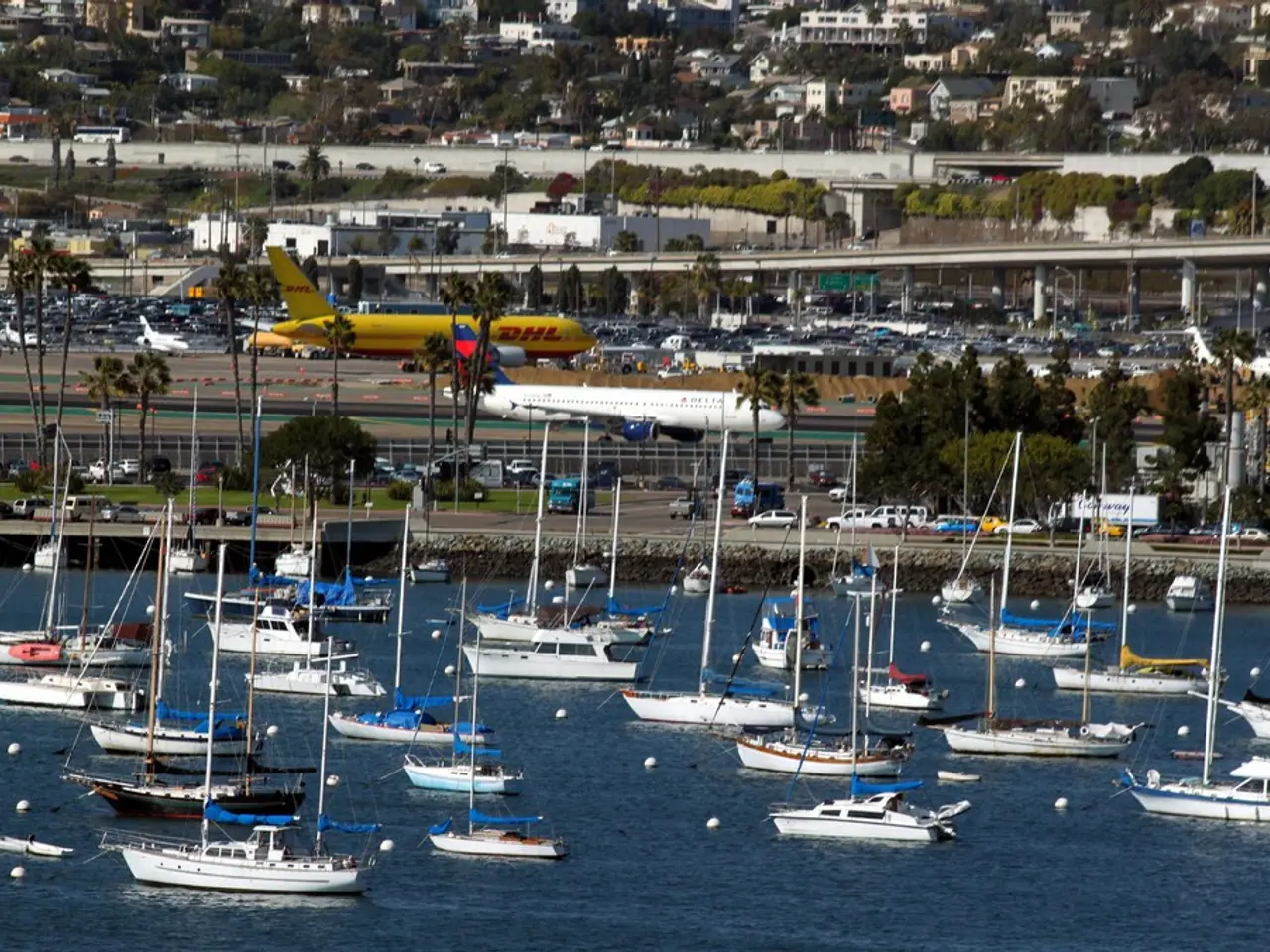Exploration of Financial Commitment in British Naval Sectors
The maritime industry is at a critical crossroads, facing significant challenges as it strives to prioritise decarbonisation and aim for net-zero emissions by 2050. These challenges include financial constraints, retrofitting and technological adoption, infrastructure and bunkering limitations, and a talent and knowledge gap.
Financial Constraints and Solutions
The transition to cleaner energy sources and technologies is costly, posing significant financial challenges for the industry. However, initiatives like the UK's Clean Maritime Demonstration Competition (CMDC) provide substantial government support for decarbonization projects. Private investment is also growing, with companies and consortia investing in clean technologies.
Overcoming Technological and Infrastructural Hurdles
Retrofitting existing vessels to use alternative fuels or integrate new technologies is complex and expensive. The lack of bunkering infrastructure for alternative fuels at ports is a major hurdle. Projects like PortZero, which has received funding to develop a zero-emission, carbon capture port solution, are crucial steps towards addressing these challenges.
Bridging the Talent and Knowledge Gap
There is a need for upskilling seafarers and shore-based teams to manage and operate greener vessels effectively. This requires investment in training and development programmes to ensure the workforce is equipped with the necessary skills for the future.
The Role of Alternative Financing Sources
Traditional financing sources may not be sufficient to cover the huge investment needed for decarbonisation. Alternative sources of finance, such as green bonds and loans, public-private partnerships, and carbon pricing mechanisms, will play a vital role in bridging the financial gap and supporting the transition to a net-zero maritime industry.
A Forward-Looking Event
An event titled "Exploring the Future of the Maritime Industry" is being hosted, featuring keynote speeches and panel discussions with leading figures within the maritime community. The event will commence at 16:00 and will cover how the UK's financial and professional business services industries and UK Government support can play a role in this transition. After the seminar, a networking reception will follow.
The UK aims to lead in maritime innovation and sustainability, with the estimated cost of decarbonising the industry ranging between $1.5 and $1.9 trillion. New technologies such as artificial intelligence and autonomous shipping have the potential to transform the face of shipping.
Spaces for the event are limited, so early registration is recommended to avoid disappointment. The full agenda for the event can be viewed on the provided website. For any questions regarding the event, contact Erika Gardiner.
Read also:
- EA Relies on Madden and Battlefield to Drive Microtransactions Recovery
- Expense for Creating a Digital Platform for Fantasy Sports
- AI-Enhanced Battery-Swapping Station in Southeast Asia Officially Opens Its Doors
- Honda unveils blueprint for design, advanced driver assistance systems, electric vehicles, fuel efficiency, and technology development







